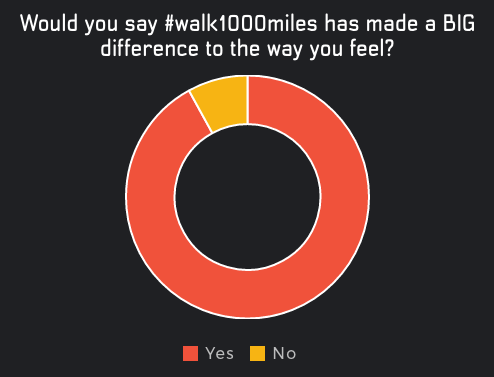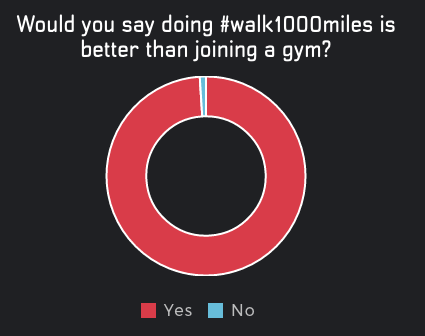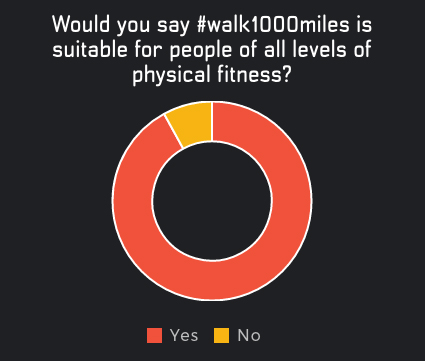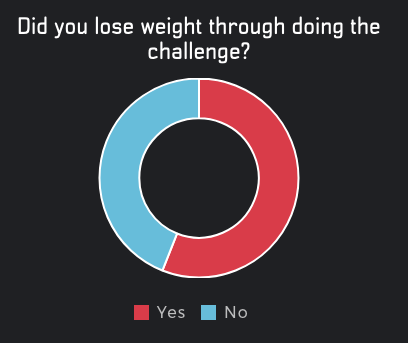#walk1000miles for health
It’s remarkable: an ever-increasing number of studies point to walking about an hour a day – co-incidentally the same as it takes to walk 1000 miles in 12 month – as the best medicine for pretty much whatever ails you. If you want to lose weight, build stronger bones, send the threat of Type 2 diabetes, stroke or depression packing, feel more creative, keep your joints supple, your stress levels low and reverse the effects of aging (for real) – walking is the way to do it. But it isn’t just the scientists saying it, it’s the tens of thousands of people (and counting) who’ve done #walk1000miles and felt their physical resilience, health and fitness soar...
Lose weight, build stamina, fight heart disease, reduce cancer risk, breathe more easily: there’s five quick reasons why you should sign up to walk 1000 miles this year.
Spend around an hour a day walking and not only will you smash the 1000-mile barrier in the next 12 months, you’ll also give your body the best tune-up it’s ever had. Walking is one of the best possible ways to get active and become healthier. It’s free, simple, easy to fit around your daily routine, and apart from a pair of comfy shoes you hardly need any specialist kit.
Let’s look at the health benefits, and there are some big ones. Cancer Research UK believes regular exercise that gets you warm and out of breath, like walking, can help prevent over 3,000 cases of cancer each year; while Macmillan says an hour a day on foot can cut the risk of death by 40-50% among people suffering the most common cases of cancer.
A recent study named the UK as the fattest nation in Western Europe – with 36% of us overweight and 27% clinically obese. How can we combat that as a nation? Walking just a single mile burns approximately 100 calories and efficiently reduces body fat. If you times that single mile by 1000, just imagine how many pounds you could shed throughout 2019.
Walking an hour a day will help you breathe better too, according to a US study that saw 50-year-old subjects regaining the lungs of their 20-year-old selves. It’s also twice as effective as running at fighting off heart disease, with an hour a day on foot cutting your risk of a heart attack in your 50s and 60s by 50%.
And we’re not finished yet… walking boosts bone density in your spine and pelvis, reducing the chances of a hip fracture; increases lubrication levels in your joints to combat knee and ankle pain; combats aging by triggering anti-aging processes in body cells; helps repair DNA; fights against brain shrinkage; and increases memory, creativity, reasoning and sociability.
Convinced? Good. Let’s get started. If you’re new to walking, don’t try too much too soon. Walk to the shops, leave the car behind for short journeys, plan a regular stroll with a friend, exercise with your dog (or a neighbour’s dog) – then build up slowly from there to longer, more challenging, more adventurous walks. A fitness tracker like a Fitbit is a good way to track your progress, and before you know it you’ll be powering towards 1000 miles. You’ll be feeling 1000 times fitter, healthier and stronger too.
“‘I’ve had a complete change of wardrobe, I feel confident in how I look and the benefits for my whole family’s health have been amazing.’”


























